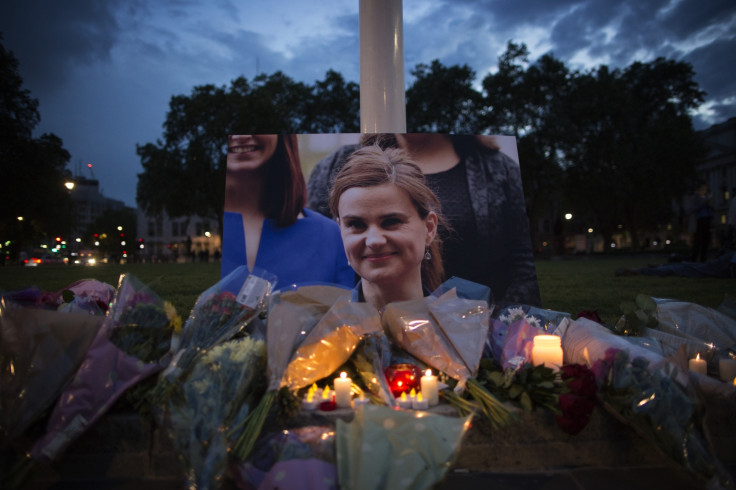Jo Cox murder: MPs explore launching inquiry into far right extremism in wake of shooting
An influential parliamentary committee is to investigate the danger of far-right groups in the UK following the stabbing and shooting to death of Labour MP Jo Cox.
The Home Affairs Committee says it will have preliminary discussions next week (June 27) on whether to launch an inquiry into what anti-extremist groups and campaigners have warned is a rise in the activity of far-right activists over the past two years.
Keith Vaz MP, chair of the committee, told the Guardian: "The rise of far-right extremism needs to be studied and acted on with much greater determination and members of the committee have asked that we do so urgently." He added: "There are strong arguments as to why we should look at this issue."
Some members of the committee have asked that an inquiry be set up into the matter, including Conservative MP James Berry. The group is already preparing a report into the government's counter-extremism strategy, specifically looking at "the major drivers of recruitment to terrorist movements linked to extremism".
The prospect of a new inquiry, looking more specifically at far-right extremism, comes months after one of the country's leading anti-extremism organisations, Hope Not Hate, warned the government should do more to "get to grips with the growing threat posed by far-right violence" in the UK.
In the charity's "State of Hate" report, published in February, the group said the UK should expect a rise in violence from the far-right in 2016, with Muslims at increased risk from Islamophobic attacks and even acts of terrorism.
It said militant right-wing groups in Britain, bolstered by foreign-born fascists, have grown in numbers over the past year, and have even been filmed holding outdoor survivalist and martial-arts training sessions for members.

Researchers found far-right demonstrations across the UK rose by almost 50% between 2014 and 2015, from 41 to 61.
"The rising militancy of Britain's far-right will lead to greater violence in 2016," Nick Lowles, chief executive of Hope Not Hate, had said when the report was published. "This could be manifested in three ways: a general increase in anti-left wing harassment and attacks; communal violence where gangs of far-right supporters clash with Muslim or Eastern European youths; or, in extreme cases, terrorism."
British far-right threat 'changing'
He added: "The Government needs to understand the changing nature of the British far-right threat and get to grips with the growing threat posed by far-right violence." The group said it welcomed any further work the committee planned to do on the topic, and urged the government itself to do more.
Hope Not Hate is one of three charities set to receive a share of the £1m (€1.3m, $1.47m) raised in memory of Cox, with the group vowing to "carry on the fight against the hatred that killed Jo Cox".
It plans to use the money to "help heal some of the divisions that have come about" in the country.
© Copyright IBTimes 2024. All rights reserved.







